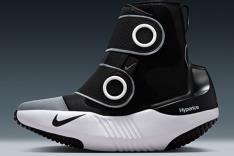Dr. Costas Karageorphis, author of Inside Sport Psychology, found from his study, "subjects who cycled in time to music found that they required 7 percent less oxygen to do the same work when compared to music playing in the background. The implication is that music has the potential to make you more energy efficient. "
Dr. Karageorphis also found in his research that music helps:
- Distract: Music helps take the mind off of the physical activity.
- Creates Emotion: A song from your childhood may boost energy because it was something you always listened to while playing in the backyard. Or, a song that played from your first rock concert may boost your spirits. There's a human connection to music that causes an emotional touch.
- Causes Arousal: The tendency to move instead of sit. If you hear a song in the background, you might notice your knee bouncing to the rhythm. That's your body wanting to move to the beat.
- People Move to Tempo: Take cyclists as an example. To pick up the pedal speed they listen to a fast-paced tempo to help them lift their pedals quickly and in a steady rhythm.
Synchronizing your movement to music enables you to perform more efficiently, which results in greater endurance. "Music is like a legal drug for athletes," says Dr. Karageorghis.
No wonder so many athletes listen to fast-tempo music. But, it's not only because it boosts blood flow. The music's beat reflects the heart rate, or beats per minute (bpm). In the fitness and endurance world, you need to hit a certain bpm to reach peak potential.
More: Run Your Best Race: The Art of Peaking
Look at a yoga enthusiast; to ease their heart rate and mind they listen to slower-paced music. The music helps calm their body, practice balance, and move with ease. Similarly, runners usually want to pick up their pace; tunes with faster beats allow their foot pattern to move faster and more efficiently.
Dr. Karageoghis explains, "People prefer music in the tempo range of 120 to 145 bpm for nearly all forms of exercise. This range appears to represent the optimal level of stimulation for exercise."
What's Your Activity?
What do you practice?
- Yoga
- Swimming
- Walking
- Running
- Cycling
- 2
- of
- 3
About the Author
Get ACTIVE on the Go


Couch to 5K®
The best way to get new runners off the couch and across the finish line of their first 5K.
Available for iOS | Android








Discuss This Article